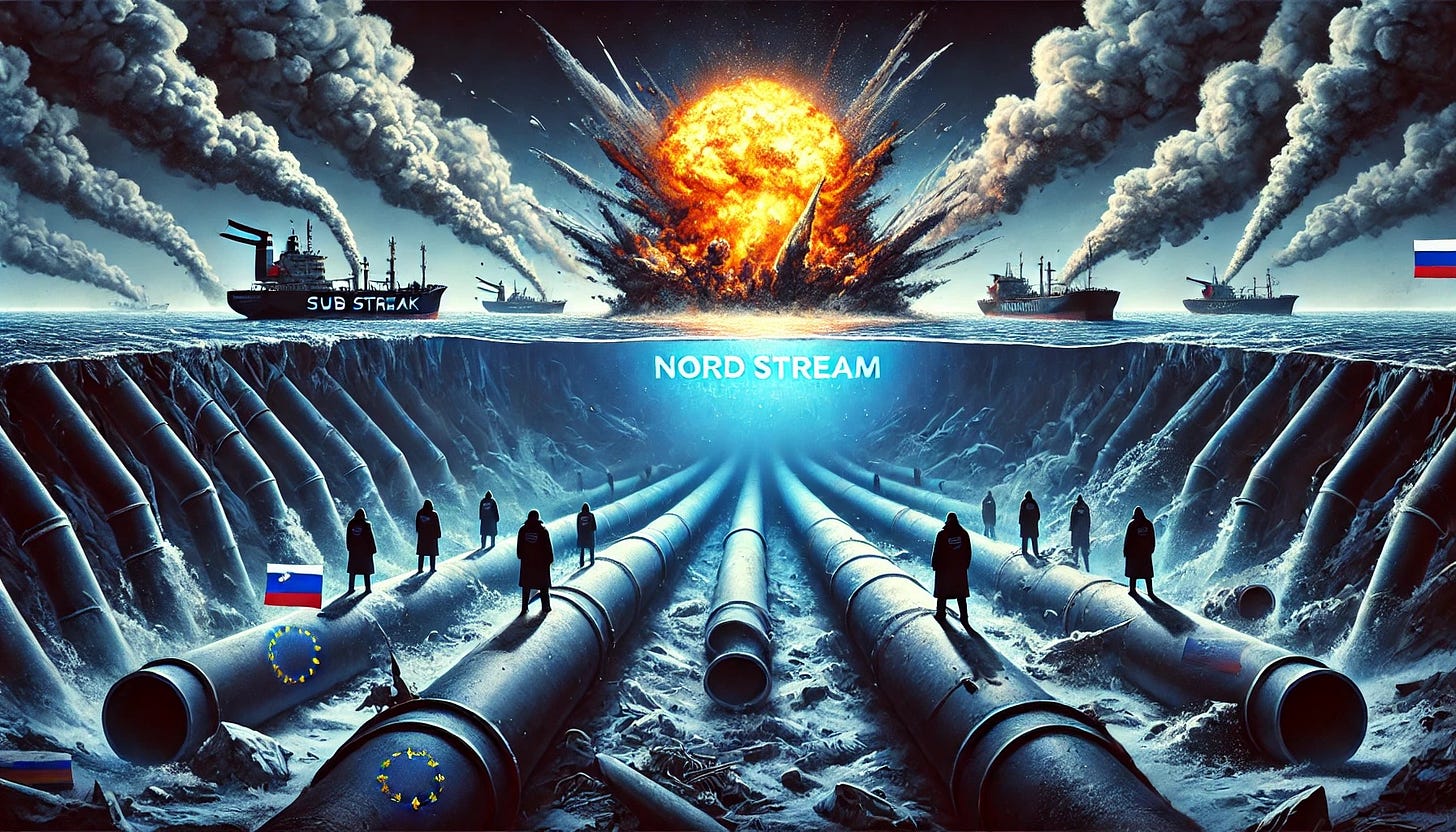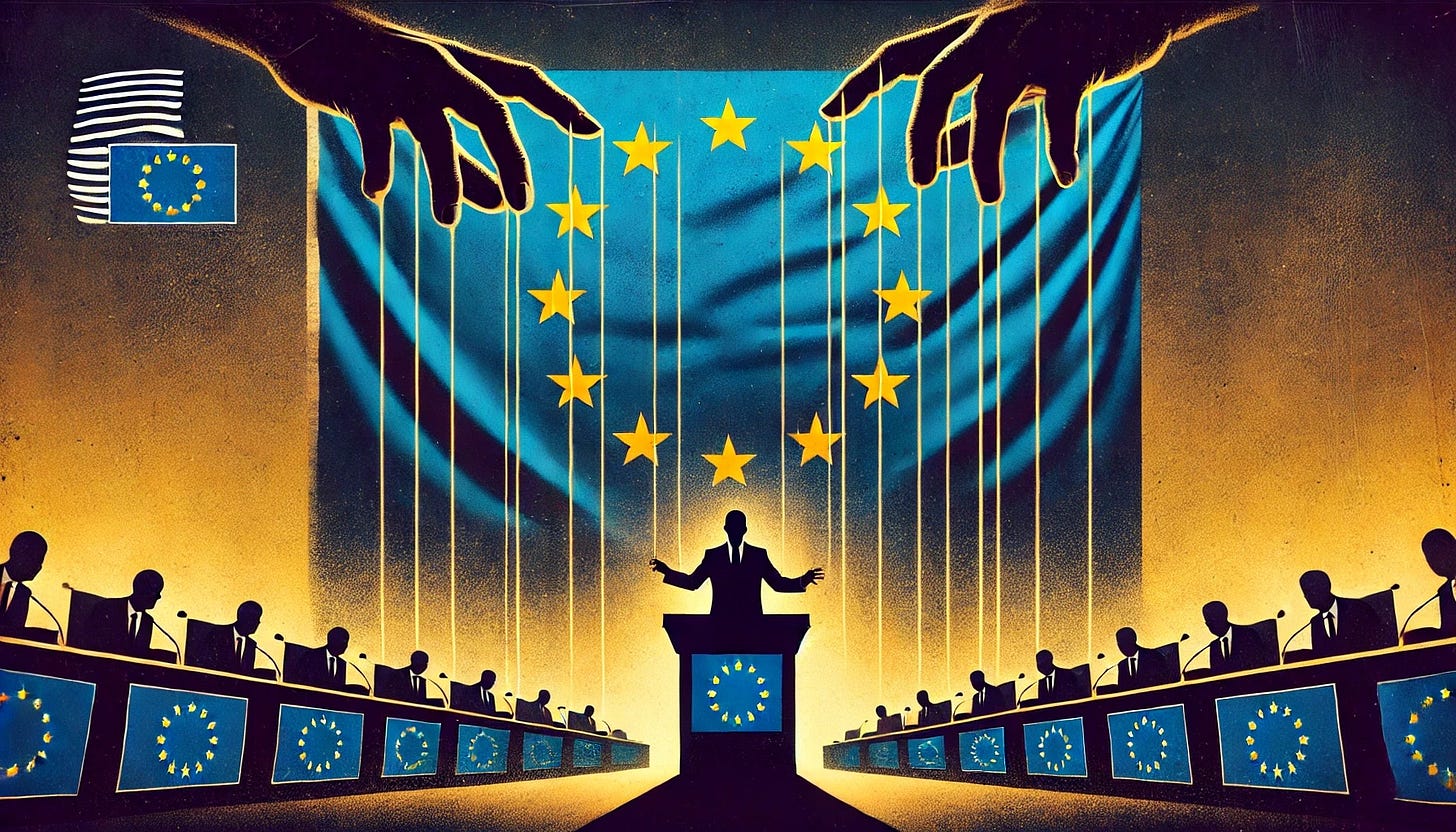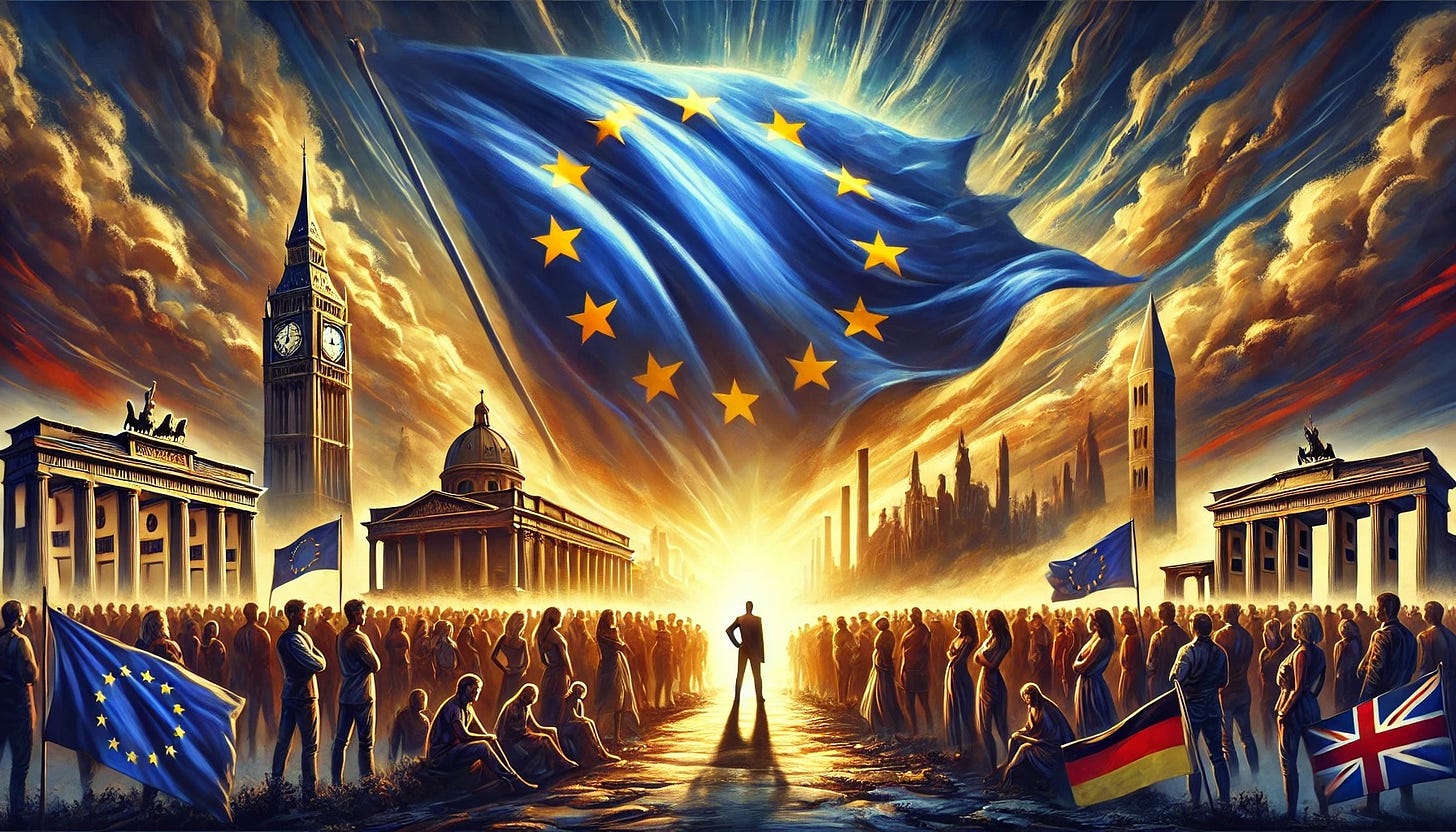For decades, the European Union has operated under the illusion of sovereignty. In reality, its political class has been systematically captured by U.S. interests, ensuring that the EU remains politically and economically subservient to Washington. From trade policies to defense strategies, the EU’s decision-making is shaped by American corporate and geopolitical agendas, not by the independent will of European citizens.
This is not speculation. By reverse-engineering decades of U.S. influence, it becomes clear how European leaders have been absorbed into elite networks that prioritize transatlantic loyalty over European autonomy.
The U.S. does not need to directly control European governments. Instead, it ensures that key European leaders are aligned with American interests long before they reach positions of power. This is done through a combination of think tanks and elite grooming programs, strategic media narratives, economic pressure via trade agreements and financial leverage, and defense dependencies through NATO and the U.S. military-industrial complex.
The result is a European political class that operates as an extension of Washington’s strategic interests rather than pursuing policies that benefit the European economy or its citizens.
Many of today’s European leaders owe their rise to U.S.-aligned institutions, ensuring their policies remain Atlanticist in nature.
The Atlantic Council, Carnegie Europe, and Chatham House act as gatekeepers for European politicians, shaping their views on defense, economy, and trade. The EU’s most powerful figures, such as Ursula von der Leyen, Emmanuel Macron, and Olaf Scholz, are all linked to these networks. The NATO framework ensures European military dependency on U.S. defense doctrine, eliminating any prospect of an independent European security strategy.
The World Economic Forum’s Young Global Leaders program has produced many of today’s top European politicians, including Emmanuel Macron, Angela Merkel, and Ursula von der Leyen. The WEF ensures that European leadership follows U.S.-centric financial, technological, and energy policies while paying lip service to EU sovereignty.
Annual meetings like Bilderberg and the Munich Security Conference serve as realignment forums where European leaders receive “guidance” on security, trade, and economic policies. These forums ensure that EU policymakers prioritize U.S. corporate and military interests, even when it directly harms European economies.
Europe’s economy is structurally dependent on U.S. financial and technological systems, ensuring that Washington retains ultimate control over EU industrial policy, energy security, and financial sovereignty.
The EU’s trade policies favor U.S. corporations over European industry. U.S. extraterritorial sanctions force European companies to comply, even when the policies harm EU economies. EU tech and AI industries are forced into dependence on U.S. platforms like Google, Microsoft, and Amazon AWS instead of fostering independent European alternatives.
The destruction of Nord Stream 2 in 2022 cut off Europe’s most cost-effective energy source, forcing the EU into high-cost U.S. LNG contracts. German industry is collapsing due to rising energy prices, but EU leaders remain silent, unwilling to challenge Washington’s role in their economic decline.
Europe remains a vassal of the U.S. military-industrial complex, with defense spending dictated by NATO, which is functionally a U.S. military project. Calls for a European military force are routinely undermined, as it would threaten U.S. arms sales and NATO’s strategic control over the continent.
Ursula von der Leyen is the perfect case study in how the U.S. grooms and installs European leaders who will serve transatlantic interests.
She was not elected by European citizens, yet wields enormous power over EU policy. She is a strong NATO advocate, ensuring there is no push for EU military autonomy. She played a major role in severing EU-Russia energy ties, keeping Europe dependent on expensive U.S. LNG. She promotes anti-China economic policies that hurt European manufacturers while benefiting U.S. tech dominance. She remains silent on U.S. corporate tax havens while demanding greater taxation of European businesses.
Von der Leyen is not an anomaly. She represents the new generation of European leadership that is designed to protect U.S. corporate and military interests, even at the direct expense of European citizens.
The U.S. strategy for Europe is simple. Prevent any EU-Russia-China economic alignment that could challenge U.S. global dominance. Ensure EU markets prioritize U.S. energy, defense, and technology sectors. Keep NATO as the enforcer of U.S. military doctrine on European soil. Use Europe as a proxy force in geopolitical conflicts like Ukraine, Taiwan, and future Middle East wars.
The result is a Europe that is politically, militarily, and economically subjugated to Washington’s interests.
For the EU to regain true independence, it must develop a real European defense alliance independent of NATO, rebuild economic ties with Russia and China to diversify trade dependencies, dismantle unelected leadership structures such as the EU Commission’s unchecked power, create independent financial systems to bypass U.S. extraterritorial sanctions, and invest in European tech infrastructure instead of relying on U.S. digital monopolies.
This is highly unlikely. The entire European political structure is too deeply embedded in U.S. elite networks, making genuine independence all but impossible under the current leadership.
The U.S. does not need a secret plan. It is happening in plain sight.
Even without declassified documents, we can observe the systematic selection, training, and elevation of pro-U.S. European leaders. Think tanks, the WEF, and NATO-aligned forums groom EU elites to favor American over European interests. Independent European policies are systematically dismantled in favor of U.S. dominance.
If Europe does not radically change course, it will remain a high-tech economic colony, permanently serving U.S. geopolitical and corporate interests. The question is no longer whether Europe is captured. The real question is whether there is any escape left.







